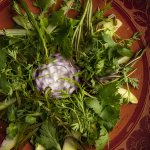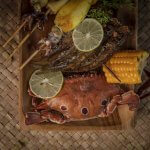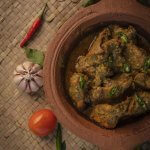Ravana Garden Boutique Hotel was envisioned with just one goal in mind – to truly harmonise with the natural environment and become the world’s premier eco-hotel. Since its creation, Ravana Garden has impressed with its dedication to ‘sustainable luxury’, a new concept that looks set to revolutionise the industry. As a result of this, Ravana Garden was recognised as the ‘Most Outstanding Tropical Hotel’ in LUXlife Magazine’s 2019 Global Luxury Hotel & Spa Awards programme. On the back of this welldeserved win, we spoke with the hotel’s Founder, Rasika Perera, to find out more about his vision.
“The birth of the Ravana Garden concept was to establish a new benchmark in sustainable tourism to enable travellers to enjoy a guilt-free vacation by leaving only a tiny footprint behind.”
Ravana Garden was designed differently. It was designed from the very beginning to be a herald of a new movement catered to an entirely sustainable experience. In this, it is totally unique: this sustainability-first ethos permeates every facet of the hotel, from the methods used in its construction and operations to Ravana Garden’s use of business e-cards over printed alternatives, as Rasika explains in more detail.
“Ravana stands for conservation, minimal waste, and a connection with nature and family. It stands for organic, natural food, and community empowerment, combined with authentic Sri Lankan culture. It’s environmentally friendly, using recycled materials wherever possible. Of course, we also make sure to not sacrifice the elements that makes it a luxury hotel and focus on providing a truly personalised experience to all of our guests.
“The hotel was named after the life and times of King Ravana, a legendary figure who ruled over kingdoms over 5,000 years ago. It is said that King Ravana and his Mayuranga Dynasty supposedly frequented this coastline paving the way to Ussangoda mountain, a serpentine deposit, rich in ultramafic minerals credited with the ability to restore psychic abilities, clear all chakras and stimulate the crown chakra.”
For Rasika, sustainability is more than just a passing fad. It is a passion born from a love of being outdoors and taking in the natural wonders of his native country. Frustrated on waiting for someone else to act to save the earth from catastrophe, Rasika laid the groundwork for Ravana Gardens, capitalising on an opportunity presented by Sri Lanka’s growing tourism sector: “The tourism sector in Sri Lanka boomed after the end of the thirty-year civil war. In the midst of this rapid growth, I keenly noted the negative impact of the environment and realised that unless there was an active shift towards sustainability in the sector, the country was headed towards environmental and cultural disaster. Out of this observation, I decided to risk all I have towards the cause, so I could showcase that sustainable tourism is the way forward for the future – not just in Sri Lanka, but the rest of the world. As such, Ravana Garden is my personal commitment towards creating, instilling and strengthening a sustainable future, which in my view, one of the best methods in combating global warming. If others too adopt at least a few elements of Ravana Garden’s approach it would help contribute towards combating global warming. We hope for the hotel to be a guiding model for others to follow.
“In light of this goal, one of the huge challenges faced was to define and introduce new ‘sustainable luxury’ elements into the concept, thereby the guest comfort is not really compromised. Some of the key sustainable luxuries that Ravana Garden promote are Personal Butler service, organic or semi organic food, as well as various private dining options that are both in and out of the site, including picnics, flexible timings, customisations wherever possible, surprises etc.”
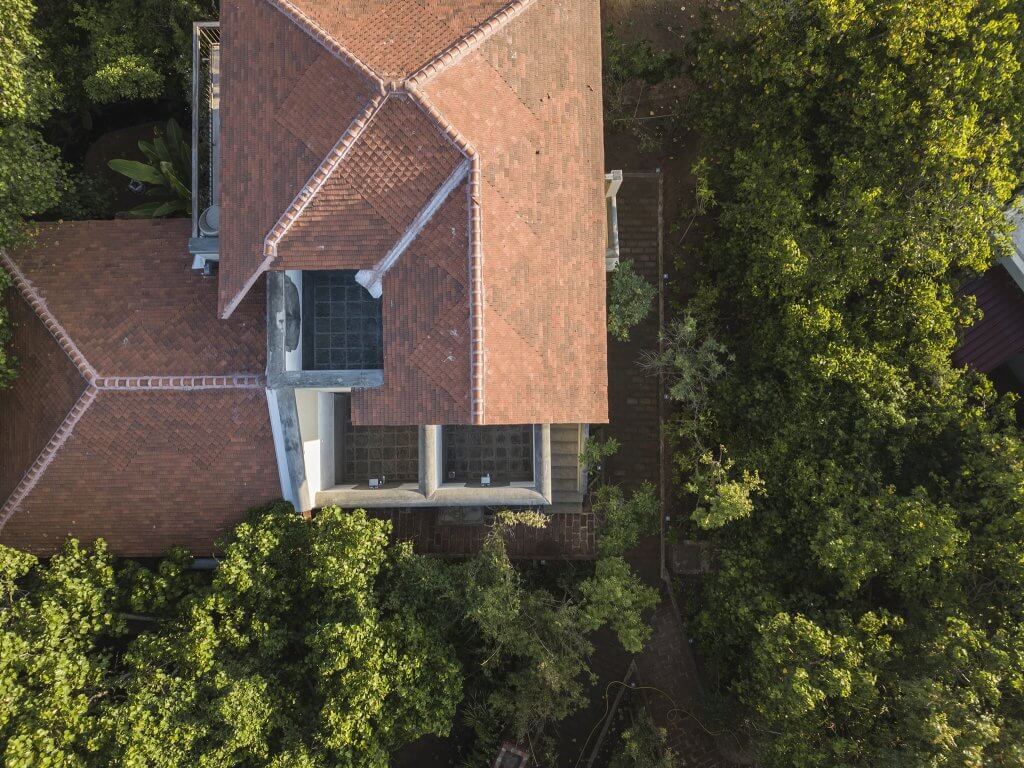
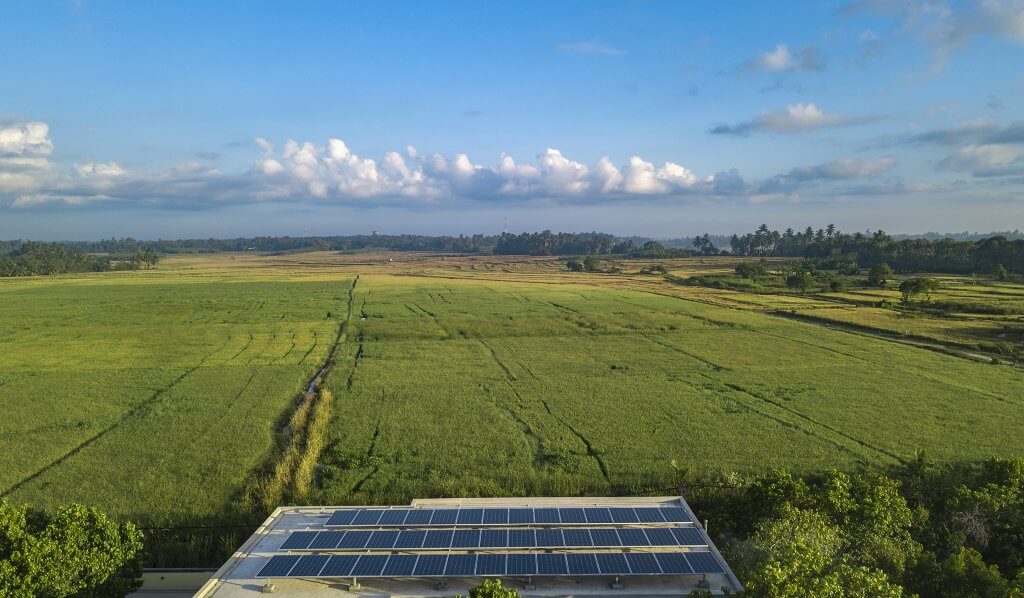

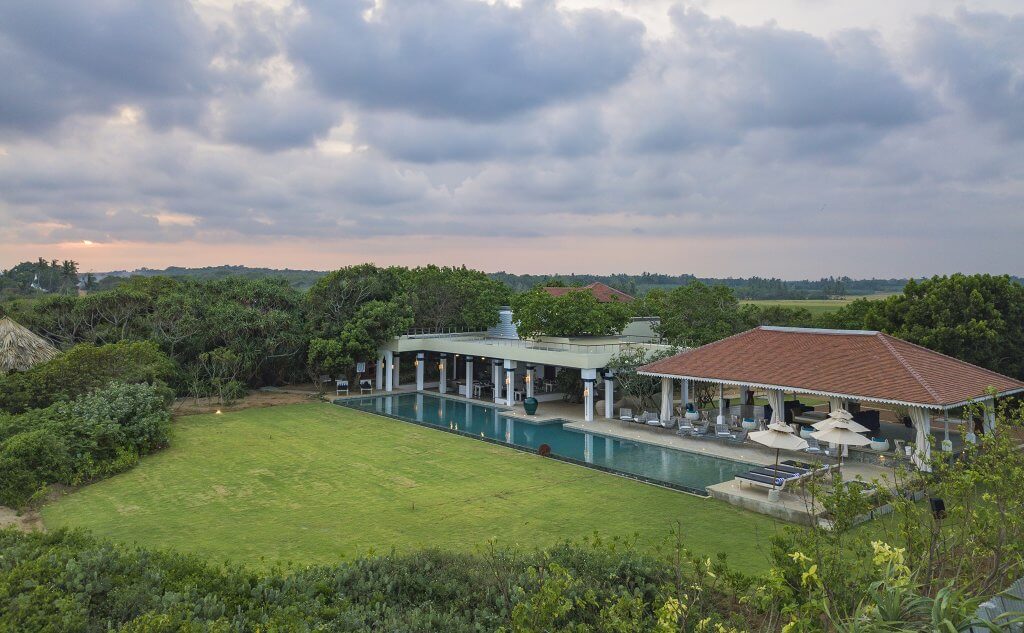

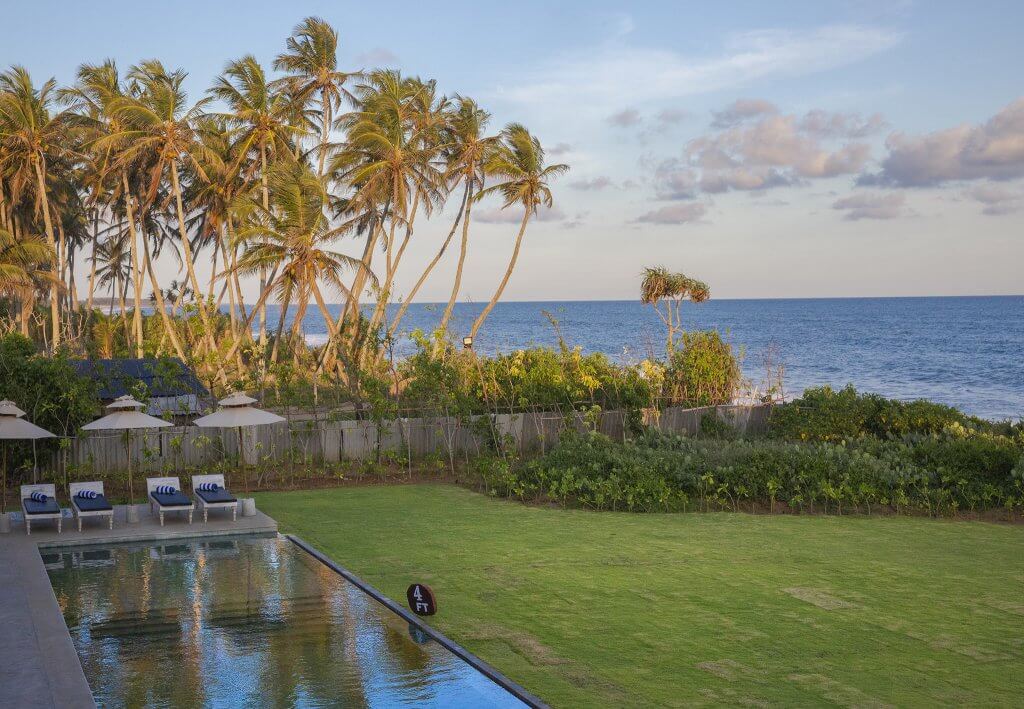
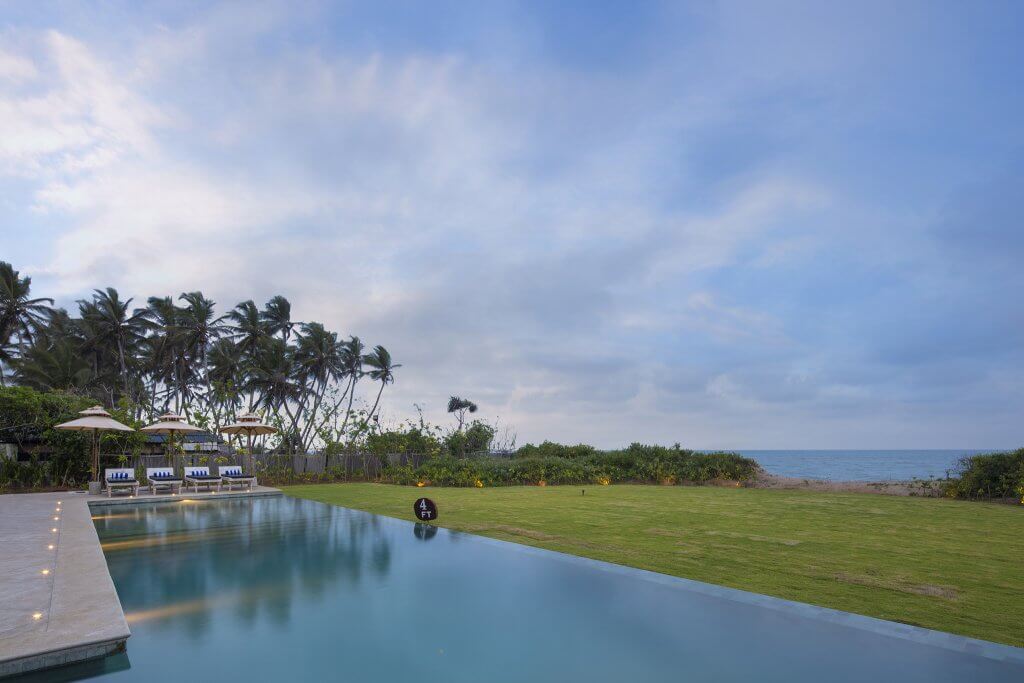
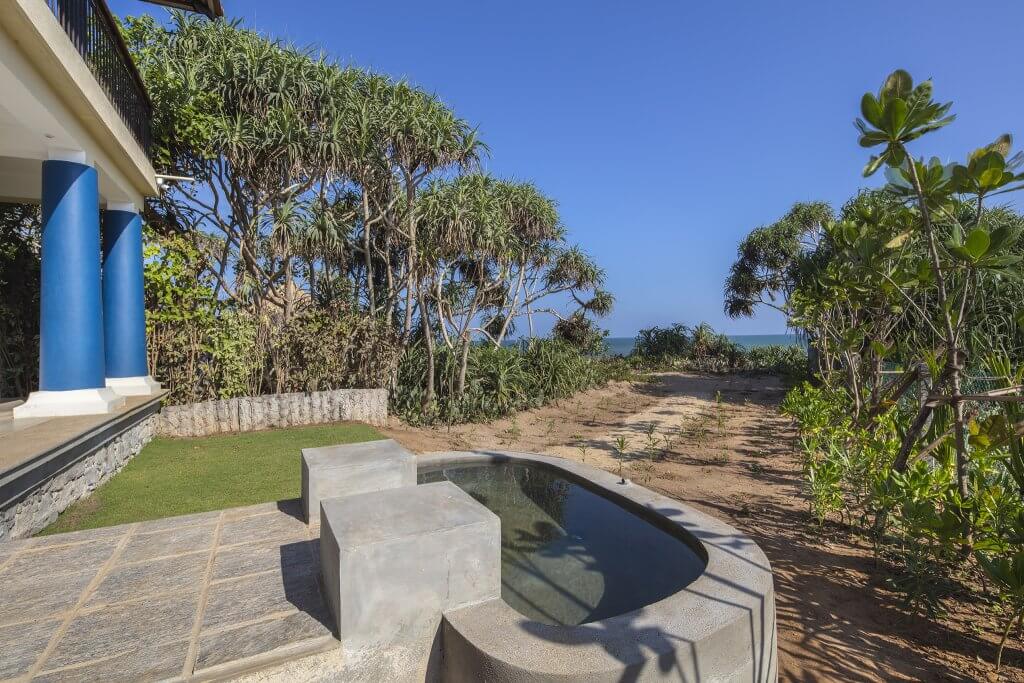
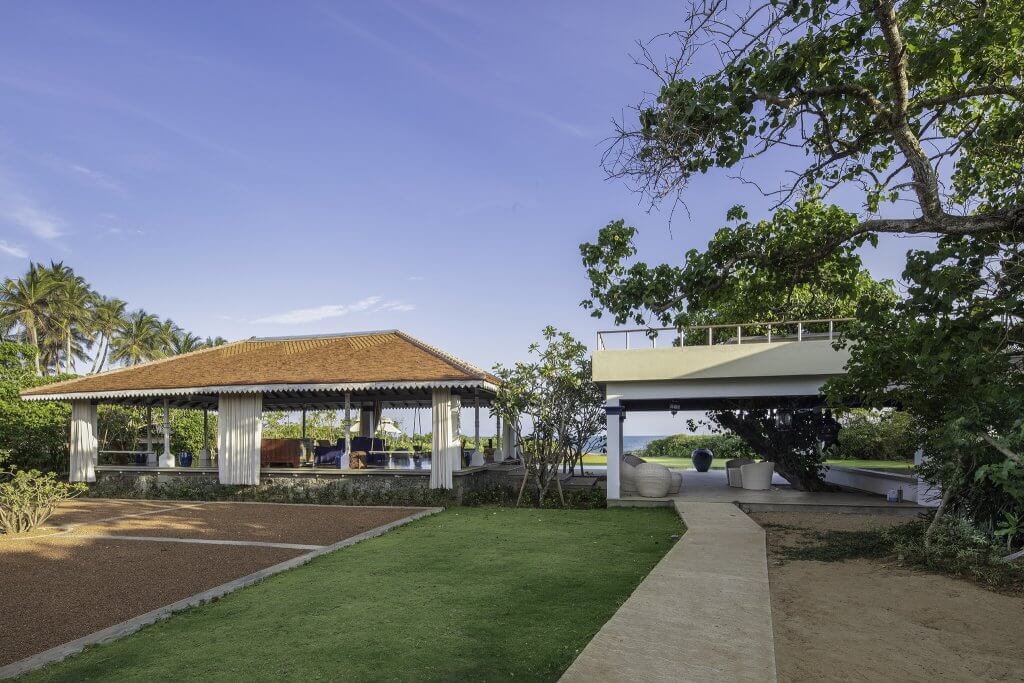
More than anything, it is clear that Rasika has created Ravana Garden with a level of diligence and dedication that few can match. Indeed, per Rasika’s request, not a single tree was felled during the hotel’s construction. “We originally planned for fifteen suites to be built, but we reduced this to nine to protect the trees and the natural habitat. We also reduce paper usage wherever possible. There’s a tablet in each guest room, replacing items such as menus and phone directories. An on-site electric car provides transportation to guests when visiting close-by excursions. Equally, none of the Ravana Garden staff uses printed business cards – all of us use e-business cards. It is estimated that annually we lose millions of trees due to printed visiting cards. Complimentary to these ideals, the hotel is a major employer in their neighbourhood, with over 35% of Ravana Garden’s staff employed from the local community “We’ve out-sourced certain hotel services to local service providers and buy some of the home-grown vegetables and fruits from the neighbourhood, despite cheaper options available at whole-sale markets”.
Today, the hotel is a nine-suite oasis, offering unmatched luxury and a guest experience that could rival that of any of the world’s best establishments. It revels in the rich and diverse nature of ancient Sri Lankan culture, finding inspiration in its inherent focus on mindfulness and spirituality. “Conceptualised and designed by renowned architect Sunela Jayawardena, with charming gardens perfected by well-known creative Laki Senanayake, Ravana Garden comes complete with a beach spa, open sky bar, solar powered utilities, and a personal butler to cater to a guests’ every need. There’s outdoor bathtubs, private gardens, and private dining too on offer. It’s romantic, perfect for any honeymoon, or for any travellers looking to relax in the middle of nowhere. Guests can rest assured that their stay would leave only the smallest of ecological foot prints.”
“Further, we have an acute understanding of what we want to offer our clients, and therefore have also included invigorating experiences for our guests in and around the area. From an open safari park, bird watching, outdoor cooking sessions, traditional Madal fishing (available only on certain days during the year) and hiking to name a few, they are sure to be spoiled for choice.”
For the gourmets, Ravana Garden’s wholesome, organic, semi- organic and natural dining offers a plethora of options for the most discerning of palettes, with taste experiences that cannot be found anywhere else in the region. It capitalises fully on Sri Lanka’s impressive culinary heritage, utilising the entire spectrum of flavours, textures, spices and colours. “For centuries, Sri Lankan ingredients have been hailed by kings and dignitaries alike, with our spices revered as being second-tonone. Which is why you’d be glad to know that we have designed, created and maintained a vibrant, thriving, organic herb and vegetable garden on-site right here at Ravana Garden, where we grow most of our own organic produce to serve within the resort’s restaurant and dining experiences. Fertilised with nothing other than natural organic compost that is eco-friendly and biodegradable, our growing methods enable us to keep our on-site dining experiences low impact and sustainable, which naturally complements our guests’ dining preferences.
“Ultimately, we specialise in delivering the finest Sri Lankan food right from the ground to the table, as one of the few restaurants in the country to offer both a wholly authentic and contemporary Sri Lankan gastronomic experience.”
As we come to the end of the interview, Rasika offers more insight into the social aspects of the hotel and how he has cultivated a feeling of ‘community’. “One of the most obvious things we have done is to remove televisions in guest rooms, to encourage guests to come and experience Ravana Garden’s sustainable offerings such as the indulgent beach spa, library, sundowner bar, outdoor bath tubs, Madal fishing, picnics and nature walks. We truly believe this helps improve family bonds by spending time together and doing things together. Of course, TVs consume electricity as guests tend to keep it switched on whether they are watching it or not, so this is just another way that we are keeping Ravana Garden as ecofriendly and low energy as possible.”
It is here that Rasika emphasises an important distinction between current top-tier luxury standards and sustainable luxury. “Our room sizes are not small, but they are not extravagant either. Crucially, we wanted to attain true sustainability, without sacrificing that unique, special quality of the property. As such, everything is at an equilibrium, in perfect balance. For instance, there are no air-conditioning units in the rooms, but there are plenty of open spaces for natural ventilation, as well as fans and humidifiers to reduce the internal temperature. We didn’t make rooms bigger to minimise the impact on the environment, however we consider the private gardens as an extension of the room itself – 50% of the room being indoor, 50% outdoor. As such we encourage guests to spend time in this outdoor space, and beyond, to make use of the many options available to them. There are outdoor cooking sessions with the chef, guests can picnic at Ussangoda Nature Reserve, a breakfast outing at Kalamatiya Bird Sanctuary, or experience an open safari to Ridiyagama.” Ravana Garden is undoubtedly luxurious, of that there can be no doubt, but the luxury elements are more natural, engrained into the very spirit of the property. Whilst more modern amenities are missing, the natural wonders more than make up for it. Indeed, their inclusion would certainly dilute the experience, watering down Ravana Garden’s utterly unique appeal. This is true sustainability. This is nature as nature should be, without over-the-top human interference. This is an integrated, subtle luxury, a potent and rare thing.
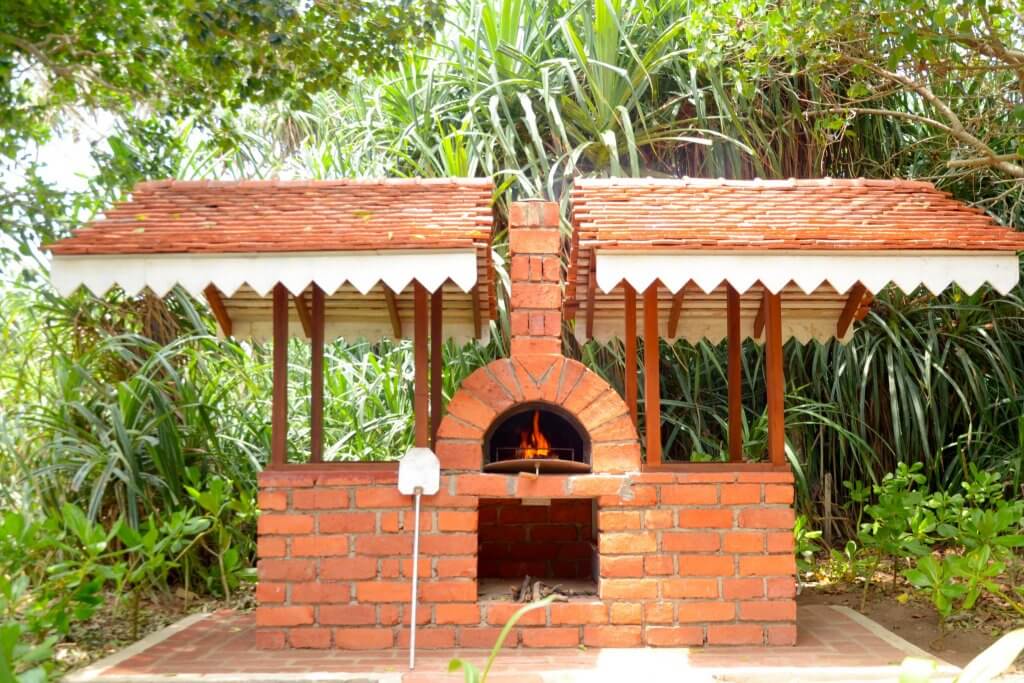

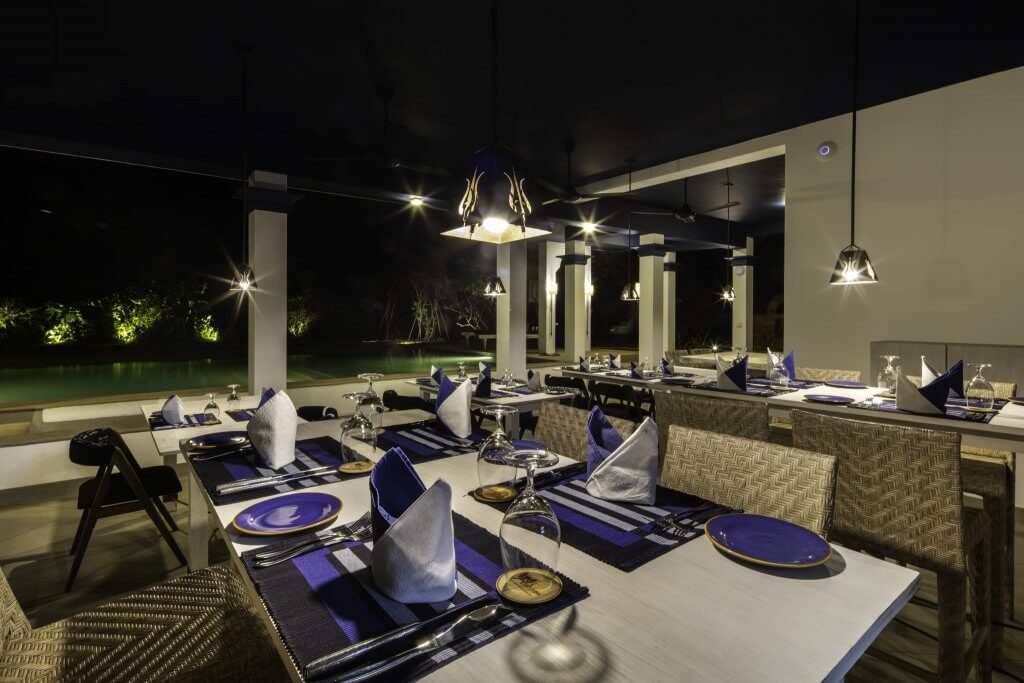
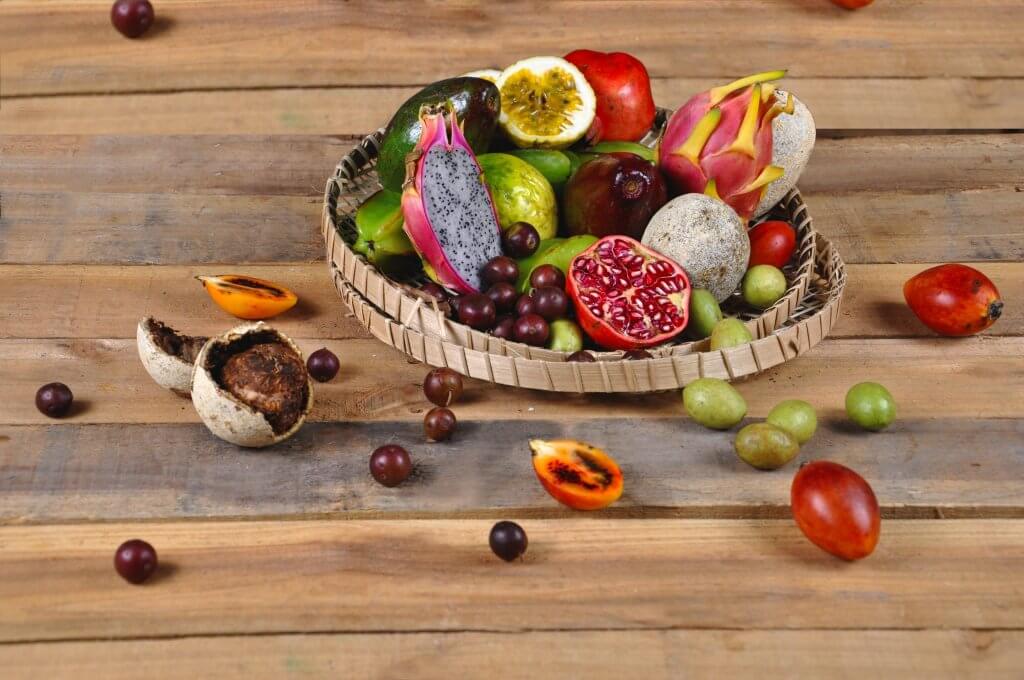
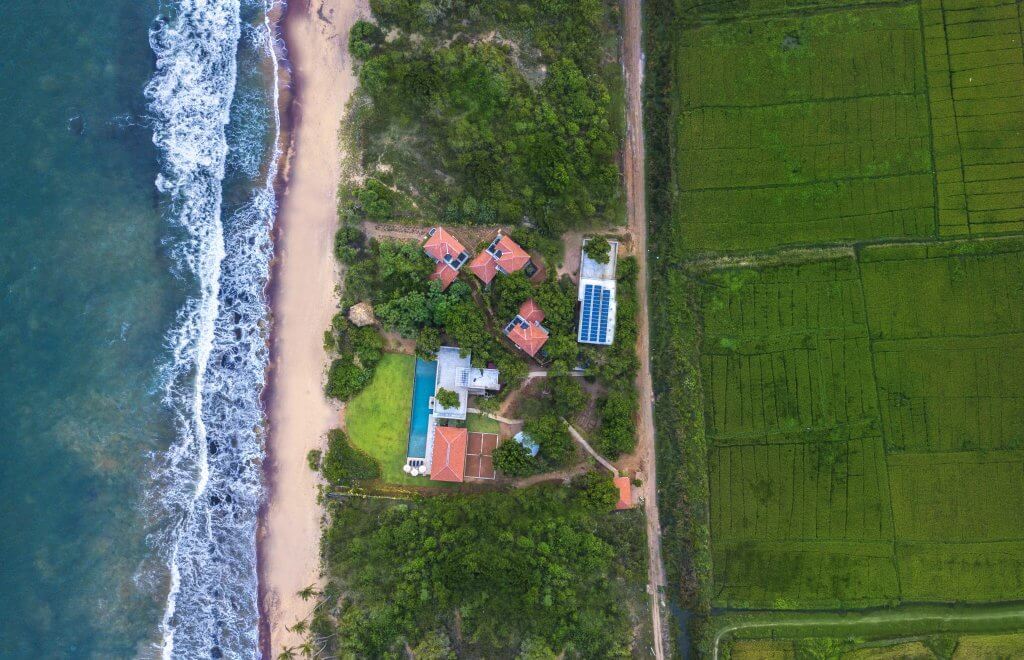
In his closing comments, Rasika takes a moment to recognise those that have helped drive Ravana Garden to success. “There are many who had helped in numerous ways, family & friends, particularly my wife Dulangi – a tower of strength- held the fort when times were rough, and the going was tough. Last but not least the Ravana team on the ground, their dedication & determination is indeed a blessing & a focal element to the success, which is clearly proven via guests’ comments.”
Perfect for those that want to renew familial bonds and to re-establish that primordial link with nature, Ravana Garden Boutique Hotel has impressed through its dedication to true sustainability. Born from Rasika’s vision and given life, it remains a bastion of sustainable tourism, leading the way for others to follow in their footsteps. However, for the time being at least, Ravana Garden acts as an example for what can be achieved through sustainability and eco-tourism. This is a luxury establishment in every way, yet, it doesn’t sacrifice an inch of what makes it special and unique. It is uncompromising in its ethos and its message, and that is down to the strength of Rasika’s leadership and his unwavering commitment to creating a better, healthier world.
Ravana Garden Boutique Hotel
Name: Rasika Perera, Founder
Address: Velipatanvila Road, Nonagama, Ambalantota, 82100, Hambantota, Sri Lanka
Website: www.ravanagarden.com
Telephone: +94 474 935 515; +94 477 807 900
Email: [email protected]










